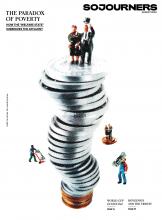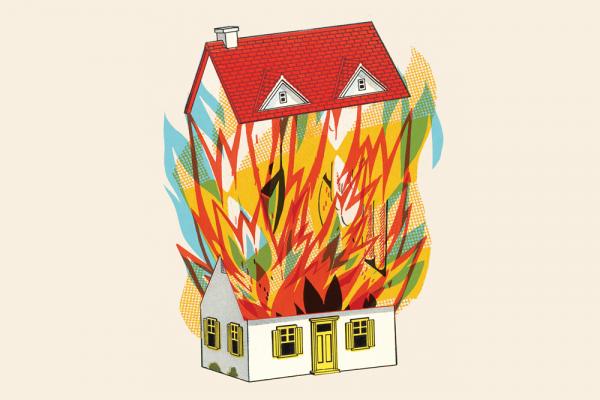THERE IS A reasonable argument, I suppose, that Christians should eschew insurance — after all, the lilies of the field and the birds of the air, and letting tomorrow be anxious for itself. But almost all of us have it, and it is one of the most interesting parts of our economy: In essence, we’ve asked insurers to be the people who understand the concept of risk for us.
So, we should probably pay some attention when — as happened this spring — State Farm and Allstate both announced they would no longer be writing new homeowners policies in California. Why? In a word, fire — or, as that good neighbor State Farm put it, “rapidly growing catastrophe exposure.” There’s simply too much chance that any given home in the Golden State will burn to the ground in any given year, and when it does it costs too much to replace. Something of the same is happening along the Gulf Coast, where increasingly state governments are becoming insurers of last resort — and where, when a hurricane approaches, economists now have models to show if the destruction is likely to bankrupt any companies.
You would think that this experience would be enough to convince insurers to become activists in the climate fight. After all, their basic tool — the actuarial table, which lets them predict and thus hedge risk — depends on the world working in the future as it has in the past, something that’s increasingly a sucker’s bet. But truth be told, insurers go on investing vast sums in the fossil fuel industry, and even underwriting new pipelines or coal mines. (One is reminded of the Leninist dictum that capitalists will sell you the rope with which to hang them.)
Read the Full Article

